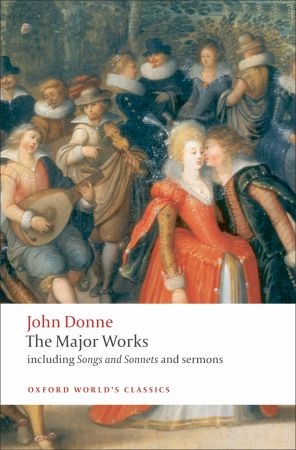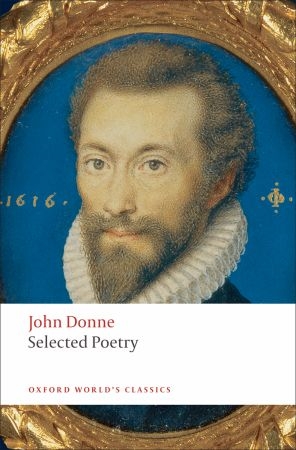 John Donne (1572-1631) is today celebrated as one of the greatest of the metaphysical poets, whose verse was daringly original and whose use of imagery and conceits marked a new, intellectual approach to poetry.
John Donne (1572-1631) is today celebrated as one of the greatest of the metaphysical poets, whose verse was daringly original and whose use of imagery and conceits marked a new, intellectual approach to poetry.
His Satires, Elegies, and Songs and Sonnets, which contain his most famous love poems, were complemented by his religious writing, both verse and prose.
He was one of the most renowned preachers of his day, and this volume does equal justice to the full range of his work. In addition to nearly all his English poetry this volume includes over 130 extracts from Donne’s sermons, as well as the full text of his last sermon, ‘Death’s Duel’.
In this Oxford World’s Classics audio guide, John Carey, former Merton Professor of English at Oxford and editor of Donne’s Major Works and Selected Poetry in the World’s Classics series, introduces the man, his times and his writing.
Simply click on the links below to listen to the guide:
1. John Donne was born into a famous Catholic family. Unlike some earlier critics, John Carey sees Donne’s renunciation of the Catholic faith as the critical event in his life. Click here to hear more about this and other turbulent events in his early life. [3:58]
2. John Carey has described the climate in which Donne grew up as ‘a time of terror’. Find out why here. [2:10]
3. Perhaps influenced by his personal history, Donne was very interested in irreconcilable opposites to the extent that John Carey sees instability as the key to his poetry. He explains why here. [3:07]
 4. How important is it to understand the world of Elizabethan beliefs in order to read Donne? Click here to find out. [3:40]
4. How important is it to understand the world of Elizabethan beliefs in order to read Donne? Click here to find out. [3:40]
5. Is there a clear dichotomy between the young Jack Donne, the frequenter of theatre and women, and the later divine, Dr Donne of St Paul’s? John Carey sees continuties as well as differences. Click here to hear him explain why. [2:37]
6. In Donne’s love poetry, the beloved is nearly always an ill-defined presence. It’s Donne’s psyche which occupies centre stage. Click here to hear about this aspect of his verse. [1:15]
7. Donne depicted the human body in ways which set him apart from his contemporaries. Click here. [1:43]
8. “I do think it’s important not to pretend that Donne’s an easy poet…” John Carey reflects on approaching Donne for the first time here. [2:27]
9. What was Donne’s legacy to English poetry? John Carey attempts to sum it up here. [2:20]
